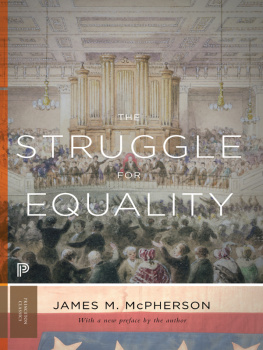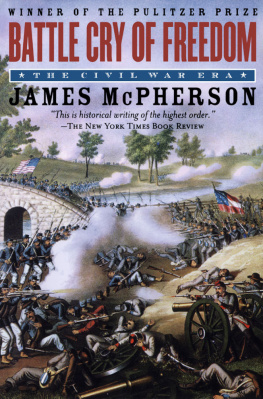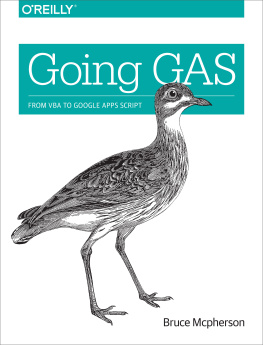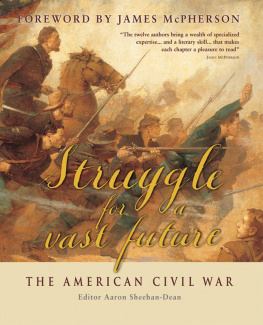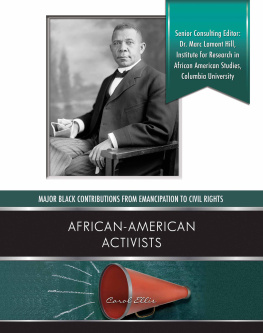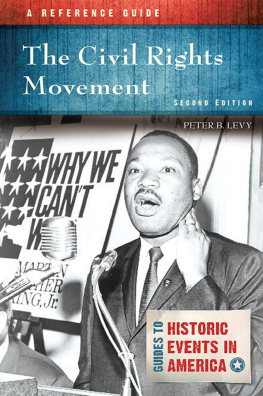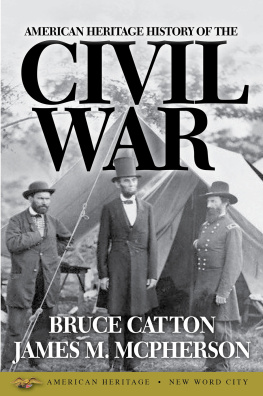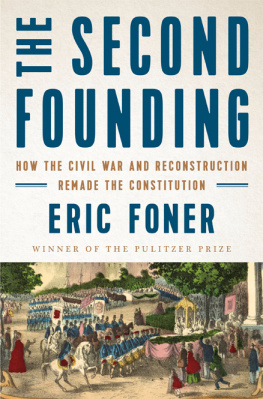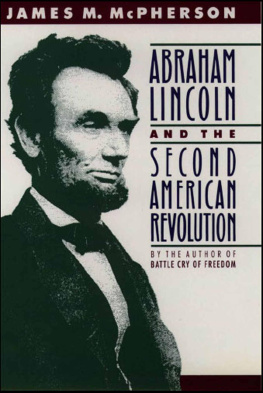
The Struggle for Equality
THE STRUGGLE FOR EQUALITY
ABOLITIONISTS AND THE NEGRO IN THE CIVIL WAR AND RECONSTRUCTION

BY JAMES M. MC PHERSON
PRINCETON, NEW JERSEY
PRINCETON UNIVERSITY PRESS
Published by Princeton University Press, 41 William Street, Princeton, New Jersey 08540
In the United Kingdom by Princeton University Press, 6 Oxford Street, Woodstock, Oxfordshire OX20 1TW
Copyright 1964 by Princeton University Press; copyright renewed 1992 by Princeton University Press
All Rights Reserved
First Princeton Classics Paperback printing, with a new preface by the author, 2014
ISBN 978-0-691-16390-1
Library of Congress Control Number 2014944833
Printed on acid-free paper.
Printed in the United States of America
10 9 8 7 6 5 4 3 2 1
THIS BOOK IS DEDICATED
TO ALL THOSE
WHO ARE WORKING TO ACHIEVE
THE ABOLITIONIST GOAL
OF EQUAL RIGHTS FOR ALL MEN
CONTENTS
PREFACE TO THE PRINCETON CLASSICS EDITION
PEOPLE OFTEN ASK ME how I became interested in the American Civil War. The Struggle for Equality provides an answer. This book grew out of my Johns Hopkins doctoral dissertation, completed in 1963 almost simultaneously with the March on Washington at which Martin Luther King delivered his I Have a Dream speech. My graduate school years coincided with the sit-ins and freedom-rides phase of the civil rights movement. During those years in Baltimore I was struck by the parallels between the events of my time and those of exactly a century earlier: confrontation between North and South; political leaders in the South vowing massive resistance to national laws; physical as well as rhetorical violence against blacks and whites trying to change Southern race relations; Northern idealists going into the South to teach and work with black people; federal troops going into the South to enforce the freedom and civil rights of African Americans. These parallels spurred me to study the origins in the 1860s of what I witnessed and experienced in the 1960s. In particular, I wanted to know what part the civil rights activists of the Civil War erathe abolitionistsplayed in the great dramas of war and reconstruction that freed the slaves and pledged the nation to the promise of equal rights that activists in the 1960s were trying to force Americans to fulfill a century later. My dissertationand this bookwere therefore my entre into the endlessly fascinating subject of the American Civil War.
In 1960 the existing scholarship on the abolitionists carried their story only as far as 1860. Historians seemed to assume that when the Civil War began, and especially when the abolition of slavery became a Northern war aim after 1863, the antislavery movement as an organized effort came to an end. Before I began the research for my dissertation, I wrote to several historians who had published books or articles about the abolitionists. I sought their advice concerning the potential for a study of the movement during the Civil War and Reconstruction. Their responses were initially discouraging. The antislavery crusade was absorbed into the Republican Party, they said; abolitionism as a distinct entity disappeared. By the time I heard from them, however, I was convinced that this disappearance theory was wrong. Abolitionist societies and newspapers continued their activities through the Civil War and beyond. Several new organizations came into existence to promote civil rights and education for freed slaves. Even though the Republican Party and the Lincoln administration caught up with the abolitionists in their commitment to abolish slavery by 1863, the reformers continued to forge ahead of the mainstream in their demands for equal rights. Their rhetoric and activism anticipated in many ways the civil rights movement of the 1960s, which surrounded me in Baltimoreand in the United Statesas I did my research and writing.
The perspective of this book is a product of the time in which it was written. That is true, I think, of most historical studies. As I told students during forty-two years of teaching at Princeton University, history is what historians say about the past. No two historians will view that past in precisely the same way. Indeed, the same historian will have different perspectives at different stages in his or her own life cycle. Fifty years ago the civil rights movement was fresh and idealistic; today many of its objectives have been achieved, some have evolved in new directions, others have failed, and an African American is president of the United States. This book written from todays perspective would be different, but not necessarily better. It might lack a sense of newness that characterized those years of the early 1960s when anything seemed possible.
In graduate school I read a number of books written a generation earlier and reissued in new editions. Their authors were still alive and active but they made no revisions to these reissued books, explaining in their prefaces that to do so would impair the integrity of perspective and interpretation particular to a time and place. I did not understand that then; I do now. This new edition of The Struggle for Equality, therefore, is unchanged from the first edition published a half century ago.
The reader, however, is entitled to know some of the things I might do differently if I were writing the book today. One important difference would be the perspective on Abraham Lincoln. Most abolitionists were sharply critical of Lincoln because they considered him too slow to act against slavery; once he had embraced emancipation as a war aim, some condemned him as too conservative on the issue of equal rights for freed slaves. Because I sympathized with the abolitionists position on these questions, I tended to adopt their attitude toward Lincoln. Over the past fifty years my deepening understanding of the complexity and difficulty of the problems Lincoln faced has changed my perspective. If he had done precisely what abolitionists demanded when they demanded it, he would have lost the essential support of a large part of the Northern constituency for the Union war effort. There would thus have been no Union victoryand no Thirteenth, Fourteenth, and Fifteenth Amendments to the Constitution to free the slaves and grant them the equal civil and political rights for which the abolitionists contended. Lincolns extraordinary skills of leadership and his sense of timing moved the country in the direction that abolitionists wanted to go more effectively than they recognized.
A second change I would make if I were writing this book today would be to emphasize more strongly the importance of the Union army and navy in accomplishing these revolutionary changes in race relations. On the progress of our arms, said Lincoln in his second inaugural address, all else chiefly depends. That all else included the abolition of slavery. The Struggle for Equality focuses mainly on the home fronton the activities of abolitionists in the forum of public opinion and politics through their newspapers, speeches, and political activities in the North. But there were many abolitionists in the army, and while the great majority of Northern soldiers were by no means abolitionists when the war began, their experiences abolitionized many of them as the war went on. In the postwar years the activities of abolitionists in the South as teachers, Freedmens Bureau agents, and Reconstruction political leaders were of considerable importance. These matters probably deserve more attention than I gave them.
Next page
